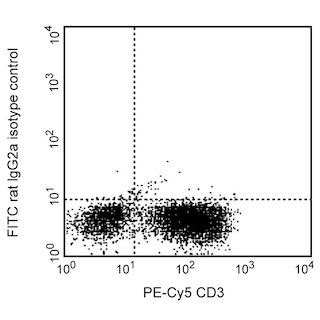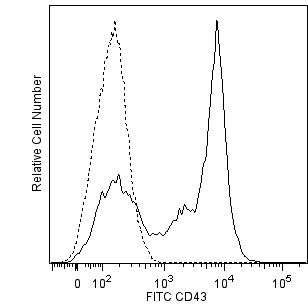-
抗体試薬
- フローサイトメトリー用試薬
-
ウェスタンブロッティング抗体試薬
- イムノアッセイ試薬
-
シングルセル試薬
- BD® AbSeq Assay | シングルセル試薬
- BD Rhapsody™ Accessory Kits | シングルセル試薬
- BD® Single-Cell Multiplexing Kit | シングルセル試薬
- BD Rhapsody™ Targeted mRNA Kits | シングルセル試薬
- BD Rhapsody™ Whole Transcriptome Analysis (WTA) Amplification Kit | シングルセル試薬
- BD Rhapsody™ TCR/BCR Profiling Assays (VDJ Assays) | シングルセル試薬
- BD® OMICS-Guard Sample Preservation Buffer
-
細胞機能評価のための試薬
-
顕微鏡・イメージング用試薬
-
細胞調製・分離試薬
-
- BD® AbSeq Assay | シングルセル試薬
- BD Rhapsody™ Accessory Kits | シングルセル試薬
- BD® Single-Cell Multiplexing Kit | シングルセル試薬
- BD Rhapsody™ Targeted mRNA Kits | シングルセル試薬
- BD Rhapsody™ Whole Transcriptome Analysis (WTA) Amplification Kit | シングルセル試薬
- BD Rhapsody™ TCR/BCR Profiling Assays (VDJ Assays) | シングルセル試薬
- BD® OMICS-Guard Sample Preservation Buffer
- Japan (Japanese)
-
Change country/language
Old Browser
Looks like you're visiting us from {countryName}.
Would you like to stay on the current country site or be switched to your country?


.png)

Flow cytometric analysis of CD43 expression on mouse splenocytes. BALB/c splenocytes were stained with either FITC Rat Anti-Mouse CD43 (Cat. No. 553270/561856; solid line histogram) or FITC Rat IgG2a, κ Isotype Control (Cat. No. 553929; dashed line histogram). Fluorescence histograms depicting CD43 (or Ig isotype control) expression were derived from side and forward light-scatter characteristics of viable splenocytes.
.png)

BD Pharmingen™ FITC Rat Anti-Mouse CD43
.png)
Regulatory Statusの凡例
Any use of products other than the permitted use without the express written authorization of Becton, Dickinson and Company is strictly prohibited.
Preparation and Storage
Product Notices
- Since applications vary, each investigator should titrate the reagent to obtain optimal results.
- An isotype control should be used at the same concentration as the antibody of interest.
- Caution: Sodium azide yields highly toxic hydrazoic acid under acidic conditions. Dilute azide compounds in running water before discarding to avoid accumulation of potentially explosive deposits in plumbing.
- For fluorochrome spectra and suitable instrument settings, please refer to our Multicolor Flow Cytometry web page at www.bdbiosciences.com/colors.
- Please refer to www.bdbiosciences.com/us/s/resources for technical protocols.
関連製品




The S7 monoclonal antibody specifically binds to the 115 kDa glycosylated form of CD43 (Ly-48, Leukosialin). CD43 is expressed on IL-7-responsive pro-B cells, plasma cells, peritoneal and splenic CD5+ B cells (B-1 cells), granulocytes, monocytes, macrophages, platelets, natural killer cells, thymocytes, peripheral T cytotoxic/suppressor cells, and most T helper cells, but not resting conventional peripheral B cells. CD43 expression has also been detected on pluripotent hematopoietic stem cells and myeloid, lymphoid, and NK-cell progenitors in the bone marrow. Studies of CD43-deficient mice indicate that CD43 participates in the negative regulation of T-cell activation and adhesion.

Development References (12)
-
Gulley ML, Ogata LC, Thorson JA, Dailey MO, Kemp JD. Identification of a murine pan-T cell antigen which is also expressed during the terminal phases of B cell differentiation. J Immunol. 1988; 140(11):3751-3757. (Immunogen). View Reference
-
Hardy R, Hayakawa K. Generation of Ly-1 B cells from developmentally distinct precursors. Enrichment by stromal-cell culture or cell sorting. Ann N Y Acad Sci. 1992; 651:99-111. (Biology). View Reference
-
Hardy RR, Carmack CE, Shinton SA, Kemp JD, Hayakawa K. Resolution and characterization of pro-B and pre-pro-B cell stages in normal mouse bone marrow. J Exp Med. 1991; 173(5):1213-1225. (Biology). View Reference
-
Jones AT, Federsppiel B, Ellies LG, et al. Characterization of the activation-associated isoform of CD43 on murine T lymphocytes. J Immunol. 1994; 153(8):3426-3439. (Biology). View Reference
-
Manjunath N, Correa M, Ardman M, Ardman B. Negative regulation of T-cell adhesion and activation by CD43. Nature. 1995; 377(6549):535-538. (Biology). View Reference
-
Moore T, Bennett M, Kumar V. Transplantable NK cell progenitors in murine bone marrow. J Immunol. 1995; 154(4):1653-1663. (Biology). View Reference
-
Moore T, Huang S, Terstappen LW, Bennett M, Kumar V. Expression of CD43 on murine and human pluripotent hematopoietic stem cells. J Immunol. 1994; 153(11):4978-4987. (Biology). View Reference
-
Rolink A, ten Boekel E, Melchers F, Fearon DT, Krop I, Andersson J. A subpopulation of B220+ cells in murine bone marrow does not express CD19 and contains natural killer cell progenitors. J Exp Med. 1996; 183(1):187-194. (Biology). View Reference
-
Stockton BM, Cheng G, Manjunath N, Ardman B, von Andrian UH. Negative regulation of T cell homing by CD43. Immunity. 1998; 8(3):373-381. (Biology). View Reference
-
Thurman EC, Walker J, Jayaraman S, Manjunath N, Ardman B, Green JM. Regulation of in vitro and in vivo T cell activation by CD43. Int Immunol. 1998; 10(5):691-701. (Biology). View Reference
-
Wells SM, Kantor AB, Stall AM. CD43 (S7) expression identifies peripheral B cell subsets. J Immunol. 1994; 153(12):5503-5515. (Biology). View Reference
-
Woodman RC, Johnston B, Hickey MJ, et al. The functional paradox of CD43 in leukocyte recruitment: a study using CD43-deficient mice. J Exp Med. 1998; 188(11):2181-2186. (Biology). View Reference
Please refer to Support Documents for Quality Certificates
Global - Refer to manufacturer's instructions for use and related User Manuals and Technical data sheets before using this products as described
Comparisons, where applicable, are made against older BD Technology, manual methods or are general performance claims. Comparisons are not made against non-BD technologies, unless otherwise noted.
For Research Use Only. Not for use in diagnostic or therapeutic procedures.
Report a Site Issue
This form is intended to help us improve our website experience. For other support, please visit our Contact Us page.